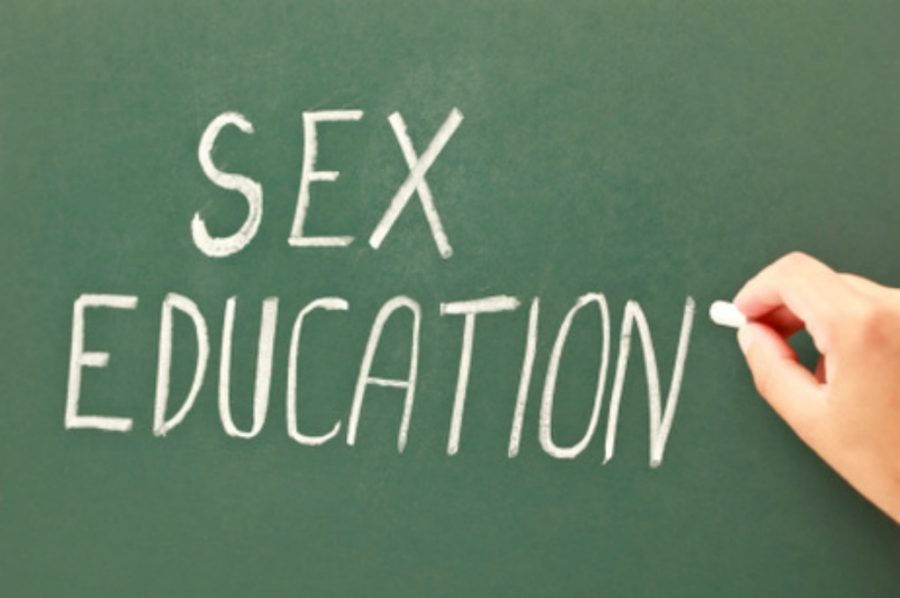Why Schools Should Teach You About Sex
February 16, 2017
In second grade, my friend explained to me under the slide at recess that if a man and a woman were in love and they kissed, the woman would become pregnant. I believed that for four years.
School has taught me a lot; however, sex-wise, school has only taught me not to have sex. Abstinence is unrealistic and only teenagers who receive comprehensive sex education will be able to make informed decisions when it comes to sex.
Abstinence-only education does not count as sexual education. It’s not sexual education if students do not learn about sex. Besides, the promotion of abstinence fails to decrease sexual relations and teen pregnancies. According to ThinkProgress, a federal report showed that abstinence-only programs had “no impacts on rates of sexual abstinence.” Unsurprisingly, Texas, a state with strict abstinence-only curricula has one of the highest rates of teen pregnancy in the country. If young people were educated about how to have safe sex instead of simply telling them to avoid it, unwanted pregnancies and sexually transmitted infections could be avoided. The religious politicians who advocate for abstinence-only initiatives end up wasting money and increasing STIs and teen pregnancy. According to Patheos, the United States government spent 1.4 billion dollars on advocating abstinence.
High school students will have sex despite the encouragement of abstinence. According to Advocates for Youth, by age 18, 70 percent of U.S. females and 62 percent of U.S. males have initiated vaginal sex. If the majority of high schoolers are having sex, they should know about contraception methods in order to prevent STIs and pregnancy. Unfortunately, teenagers are likely ignorant when it comes to sex ed. According to the Guttmacher Institute, “among teens aged 18–19, 41% report that they know little or nothing about condoms and 75% say they know little or nothing about the contraceptive pill.” Despite unpreparedness, students are having sex anyway; it’s up to the government to fix the lack of sexual education.
Predictably, young people have more STIs due to their misinformation. According to the Center for Disease Control and Prevention, estimates suggest that people aged 15–24 years acquire half of all new STIs and that 1 in 4 sexually active adolescent females have an STI, such as chlamydia or human papillomavirus (HPV). If young people learn about contraceptives that protect against STIs in high school, STIs would decrease greatly. Not only will STIs decrease with comprehensive sex education, but so will pregnancy. According to the Washington Post, the University of Washington in Seattle found that teenagers who received some type of comprehensive sex education were 60 percent less likely to get pregnant or get someone else pregnant. A 60 percent drop in teen pregnancy and STDs would be momentous and it’s easily achievable with education, something already accessible to American teenagers.
Comprehensive sex education ought to be a priority because topics like consent, sexual orientation, pregnancy, and sexual assault are complex issues that parents often do not address, but teens regularly encounter. According to the Brown Daily Herald, only 23 states mandate sex ed, and out of those, only 13 require that the instruction be medically accurate. That’s less than half of the nation requiring sex education. In the movie “Mean Girls,” the health teacher yells that pregnancy means death, and there’s a harsh reality behind the joke. Ignorance about sex, especially consent, is dangerous and may lead to unwanted pregnancies, diseases, and assault. Unlike long division, sex is a topic you’ll actually need to know.



